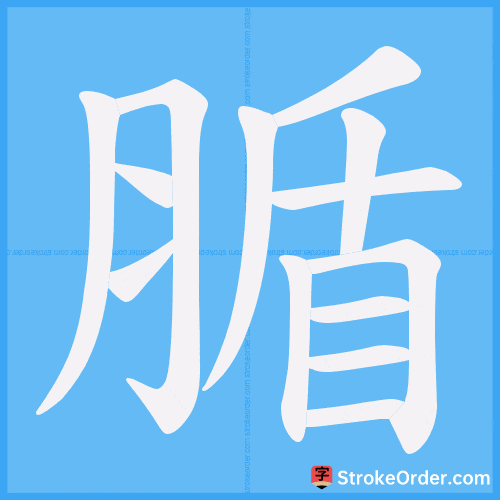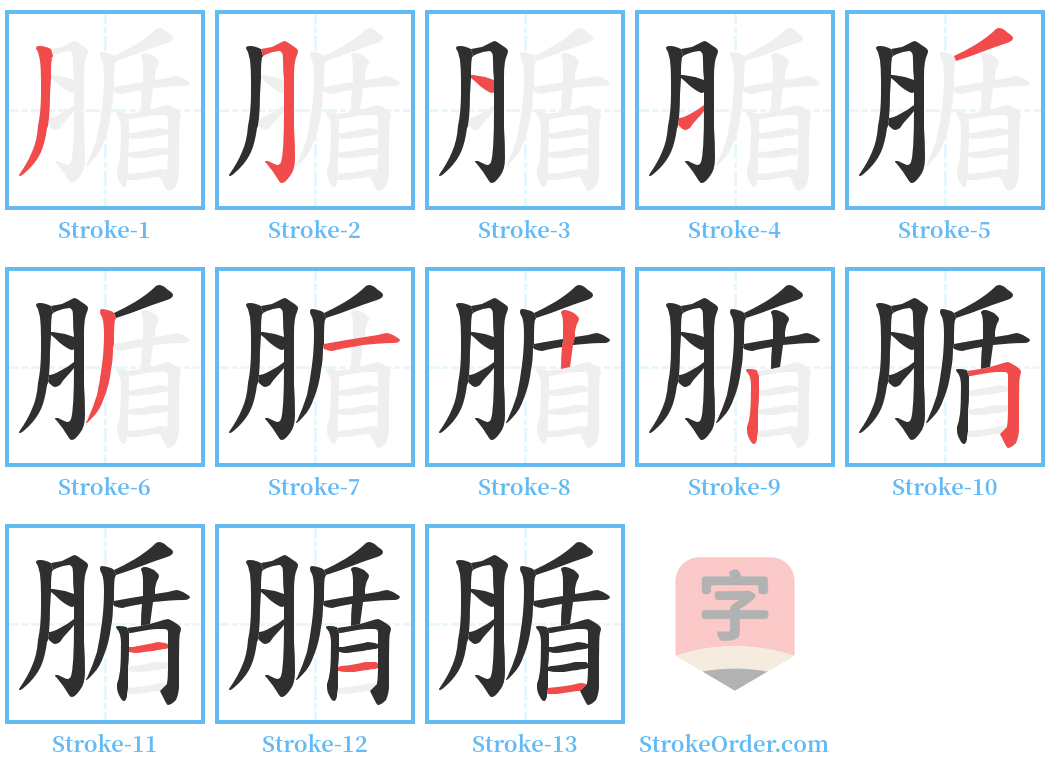腯 Stroke Order
Animated Stroke Order of 腯

Stroke Order Diagrams for 腯

Information of 腯
Pinyin
tú
Radical
月
Strokes
13 strokes
Usage
★★
Definition
腯 [tú]
形
1. 肥壮。多用以形容牲畜 (fat and sturdy)
- 例如:腯怪 (a clumsy and fat creature); 腯腯 (looking fat and sturdy); 腯伟 (tall and stout); 腯肥 (a fat pig used for ancient sacrifices); 腯成 (growing robustly); 腯鸡 (a capon).
引
1. 《说文》:腯,牛羊曰肥,豕曰腯。段注:“按,人曰肥,兽曰腯,此人物之大辨也。又析言之,则牛羊得称肥,豕独称腯。”
- Translation: According to "Shuowen," (腯) refers to cattle and sheep as fat, while pigs are referred to as 腯. Commentary by Duan: "It is noted that humans say fat, while animals say 腯, which is a significant distinction between humans and animals. Furthermore, to clarify, cattle and sheep can be referred to as fat, while pigs are uniquely called 腯."
2. 《左传·桓公六年》:吾牲牷肥腯,粢盛丰备。
- Translation: In the "Zuo Tradition," it states: "Our livestock are fat and abundant, and the offerings are lavish and plentiful."
3. 左思《吴都赋》:鸟兽腯肤。
- Translation: In "Wu Du Fu" by Zuo Si: "Birds and beasts are fat and plump."
Note:
The character 腯 is primarily used to describe livestock that is fat, particularly pigs.